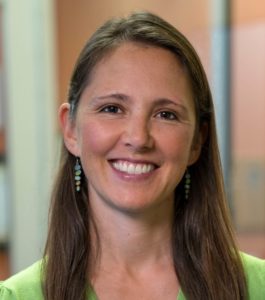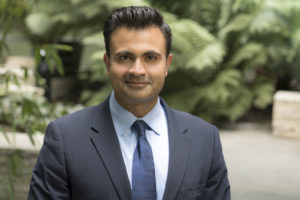Kaiser Permanente study shows innovative outreach program improves well-being
A new Kaiser Permanente physician peer support program designed to reduce burnout helped improve doctors’ well-being and had a positive impact on the culture of the medical departments that took part in the program, Kaiser Permanente researchers found.

The study, published November 1 in PLOS ONE, analyzed the impact of the Kaiser Permanente Northern California (KPNC) Peer Outreach Support Team (POST) program in 2 KPNC hospitals. The program is now active in 10 KPNC hospitals, and 3 more hospitals intend to launch POST programs over the next few months. POST was designed to complement other types of support programs KPNC makes available to physicians, nurses, and other hospital staff.
“We wanted to create a program that would help address the burnout that grew worse nationally during the pandemic,” said the study’s first author Molly L. Tolins, MD, an emergency medicine physician with The Permanente Medical Group (TPMG) and POST’s founder and regional director. “Peer support allows the recognition of and remedy to the moral injury that physicians experience when they feel they can’t be fully themselves, adhere to their own values, or do enough for a patient due to constraints within health care. It helps foster a culture that allows us as physicians to return to our full humanity.”
 Between June 2019 and May 2022, there were 11 departments in 2 KPNC hospitals that implemented the POST program, reaching a total of 530 physicians. Over those 3 years, 306 POST interactions took place, with each lasting a median of 60 minutes.
Between June 2019 and May 2022, there were 11 departments in 2 KPNC hospitals that implemented the POST program, reaching a total of 530 physicians. Over those 3 years, 306 POST interactions took place, with each lasting a median of 60 minutes.
The physicians who provide the peer support are nominated for the position through an anonymous survey. Those who choose to take part undergo an initial 4-hour training that covers burnout, confidentiality and risk concerns, program structure, the components of a peer support interaction, identification of and response to red flags, how to access additional resources, and hands-on practice. The peer supporters are embedded in their departments, providing proactive one-on-one emotional support to their colleagues after difficult clinical experiences.
High marks from physicians for POST program
The study found that 66 of the 75 physicians who responded to the research team’s survey were aware of the POST program. Of these, 30 had made a referral for a colleague and 16 had made a self-referral. Overall, the survey respondents rated the program very favorably. Among those who had a peer support interaction, the majority reported that the support was helpful, improved their well-being, and made them more comfortable talking about their work-related emotions. In addition, nearly 85% of the survey respondents said they would recommend the program to another department.
I’ve seen how effective and important the program has been in changing the culture of my own department.
— Dana Sax, MD
In open-ended responses to the survey, physicians said that the POST program made them feel “less isolated, frustrated, and victimized” after a difficult event; improved group morale; and had “the potential to positively change the culture of medicine in general.” One physician said POST allowed the sharing of “thoughts and feelings in a consequence-less environment where judgment and/or next steps were not inevitable,” while others note that the program made them feel “less alone in my situation.”

Tolins said she and her colleagues integrated unique aspects into the POST program that differentiate it from similar programs at other hospitals. Most programs are created for all health care providers, but POST is specifically tailored to physicians. It is also department-based, which ensures physicians receive support from colleagues who are familiar with their work environment.
“It’s important that rather than having outside clinicians provide support, we are getting peer support from our colleagues who understand the environment we work in and who experience the same challenges,” said senior author Dana Sax, MD, an adjunct investigator with the Kaiser Permanente Division of Research (DOR) and TPMG emergency medicine physician who works at one of the hospitals where the program was started.
Changing the culture of medicine
The peer program is designed to counteract a culture of medicine that places value on suppression of emotional reactions.

“Through medical training, many times inadvertent messaging can be that feeling vulnerable or showing emotions is somehow a personal failure,” said study co-author Jamal Rana, MD, PhD, a DOR adjunct investigator, a TPMG cardiologist, and assistant physician chief for Medical Specialties and Wellness Operations in Oakland Medical Center, who helped implement the program. “There are also societal expectations for physicians — we are supposed to be perfect and tough — and with this program, we are baking in the idea that it is okay for physicians to feel vulnerable and get such crucial support.”
Another distinct aspect of the POST program is that it allows for third-party referrals — a process that permits physicians to refer other physicians — which helps bring a culture of support into the hospital setting.
“Studies show that physicians in particular are much less likely and much more reticent to reach out for support of any kind, including peer support,” said Tolins. “By creating a third-party referral system, we’re asking people to look out for each other, fostering a culture of mutual support. We are telling physicians who may be suffering that the onus isn’t just on them to reach out for support; we’re breaking down those barriers to support and bringing peer support directly to them. This culture shift is most apparent when, after a difficult case, I may get the same referral from 5 to 10 different sources. People hear about a physician who was involved with a difficult case, or is struggling, and they want to be sure they receive support.”
The authors say they hope their study will encourage other hospital systems to look at how they can initiate or expand support programs for physicians.
“I’ve seen how effective and important the program has been in changing the culture of my own department,” said Sax. “Programs like this allow us to discuss openly the emotions we face as physicians. We hope that sharing our experience implementing the program and our findings on the study’s effectiveness will encourage similar programs to be more widely adopted.”
Coauthors include Suzanne Lippert MD, MS, Christopher LeMaster MD, MPH, and Yusuke F. Kimura MD, of The Permanente Medical Group.
# # #
About the Kaiser Permanente Division of Research
The Kaiser Permanente Division of Research conducts, publishes and disseminates epidemiologic and health services research to improve the health and medical care of Kaiser Permanente members and society at large. It seeks to understand the determinants of illness and well-being, and to improve the quality and cost-effectiveness of health care. Currently, DOR’s 600-plus staff is working on more than 450 epidemiological and health services research projects. For more information, visit divisionofresearch.kaiserpermanente.org or follow us @KPDOR.





Comments (0)